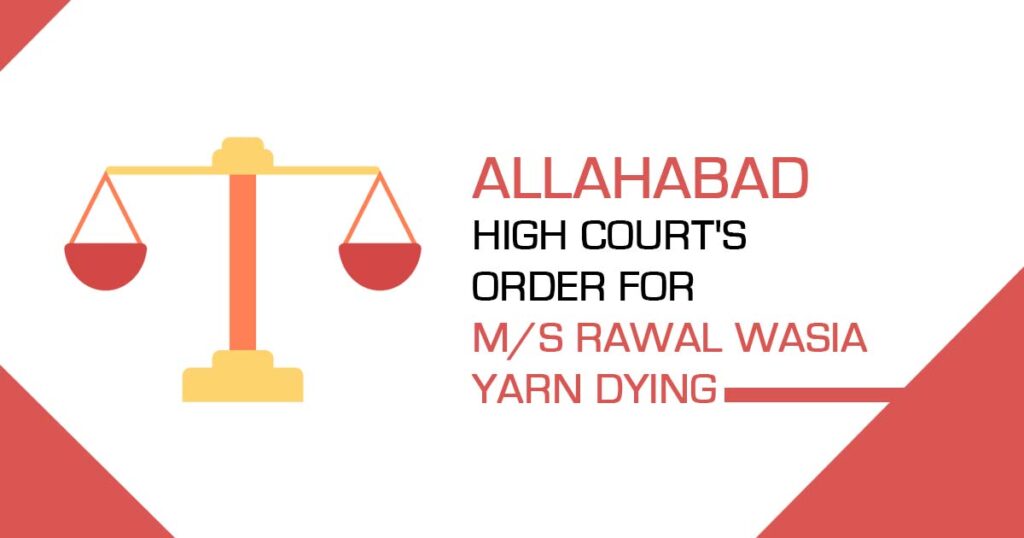
Penalties should not be imposed solely for technical errors lacking any intent to evade tax
The Hon’ble Allahabad High Court in the case of Rawal Wasia Yarn Dying (P.) Ltd. v. Commissioner Commercial Tax [Writ Tax No. 352 of 2023 on January 16, 2024] ruled that the invoice itself includes the particulars of the truck, the error committed is technical only and without any intention to evade tax. Therefore, there is no need to levy a penalty under Section 129(3) of the Central Goods and Services Tax Act, 2017 (“the CGST Act”).
Facts on Allahabad High Court
The applicant Rawal Wasia Yarn Dying did not file Part ‘B’ of the E-way Bill. The invoice had all the elements of the truck that was taking goods and the goods were not invariance with the invoice. On May 24, 2022, the Petitioner was served an Order (“the Impugned Order”) under Section 129(3) of the Uttar Pradesh Goods and Services Tax Act, 2017 (“the UPGST Act”) imposing a penalty upon the Petitioner. The subsequent appellate authority dismissed the plea of the Petitioner through the Order on October 15, 2022 (“the Impugned Order”).
Therefore, dissatisfied with the Impugned Order, the present writ petition was filed via the Petitioners.
Case Issue on Rawal Wasia Yarn Dying
A Penalty can be charged once it is established that there is no intent to evade tax and there was only a technical error.
Held on Allahabad High Court
The Hon’ble Allahabad High Court in Writ Tax No. 352 of 2023 ruled as under:
Noted that the invoice itself is included in the information of the truck and the error that the petitioner made was of technical type and without any intent to evade the tax. There is no need to impose the penalty under Section 129(3) of the CGST Act once the same point has been substantiated.
Laid on the case of M/s Citykart Retail Private Limited through Authorized Representative Commissioner Commercial Tax and Another [2023 U.P.T.C. [Vol.113]-173] where it was ruled that non-filling up of Part ‘B’ of the GST e-Way Bill by itself without any intent to evade tax could not directed to the levy of penalty under Section 129(3) of the CGST Act.
Ruled that the respondents return the security to the applicant in 6 weeks from the order date. Therefore the impugned orders were suppressed and set aside.
| Case Title | M/S Rawal Wasia Yarn Dying Pvt. Ltd |
| Citation | WRIT TAX No. – 352 of 2023 |
| Date | 16.1.2024 |
| Counsel for Petitioner | Pooja Talwar |
| Counsel for Respondent | C.S.C. |
| Allahabad High Court | Read Order |